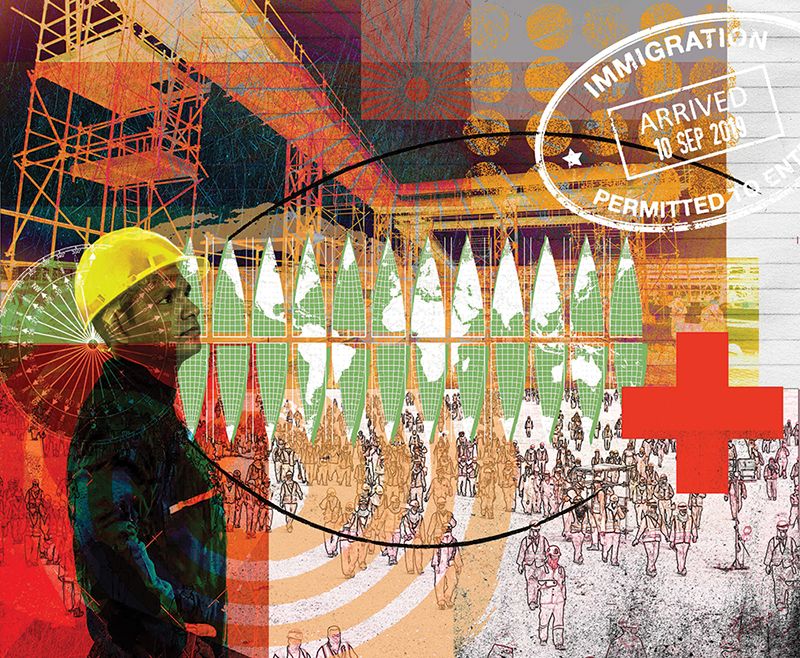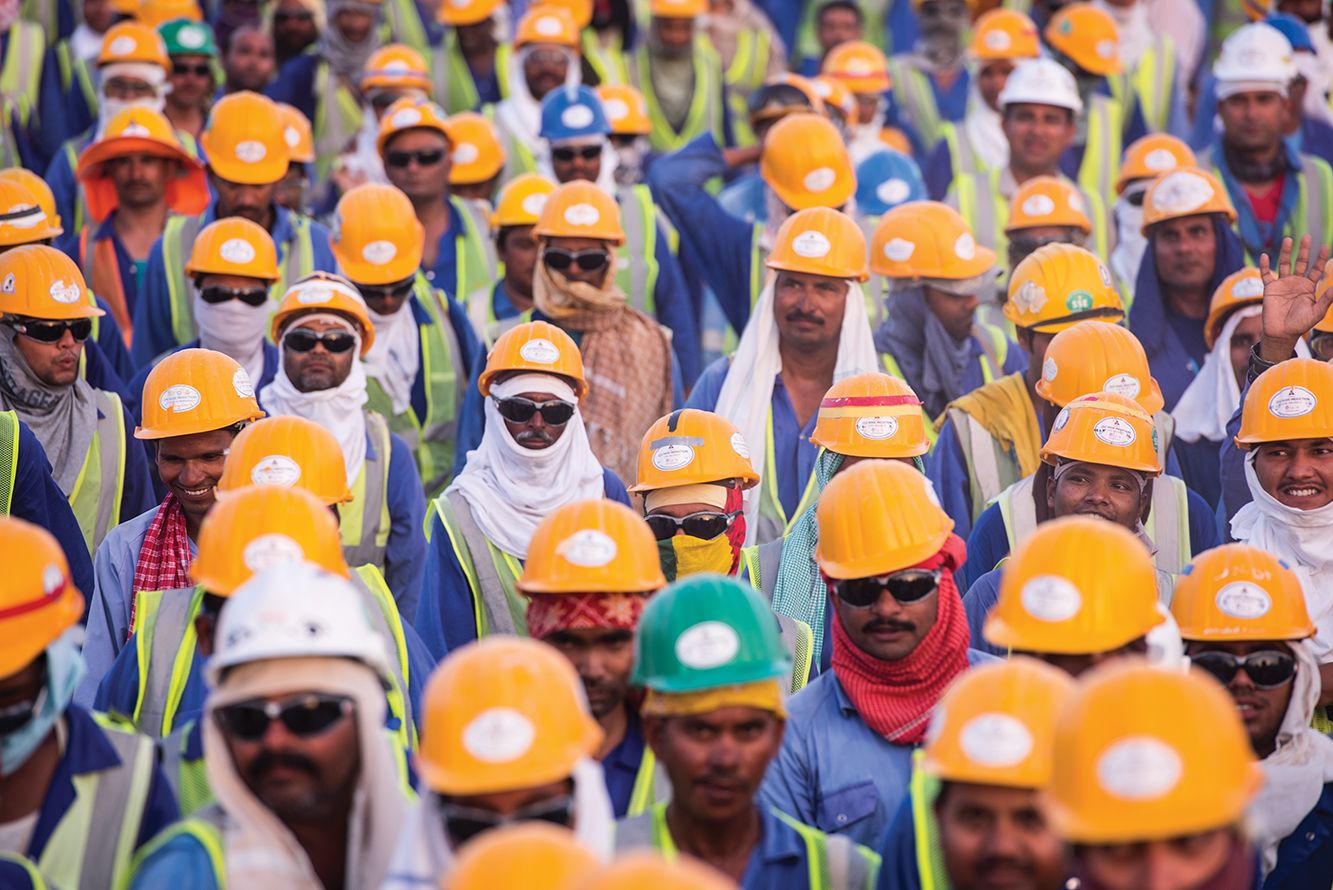Throughout Petrofac’s core markets, large teams of migrant subcontractor workers will be crucial to the success of any engineering or construction project.
Often, they will work in remote locations, thousands of miles from their loved ones. They may be away for years. Their motivation will be to provide much-needed financial support to their families and communities. And the construction site will be their home for extended periods of time.
Petrofac’s responsibility is to understand the realities of their situation – to protect them from risks, provide decent conditions, and ensure that the subcontractors who have employed them, respect their rights.
So, what risks do migrant workers face?
THE SEARCH FOR WORK
Faced with few employment opportunities at home, many people are prepared to migrate to other countries, in the hope of picking up better-paid work and supporting their families – which immediately puts them in a vulnerable position.
THE PROMISE OF DECENT EMPLOYMENT
Migrant workers generally find employment through a recruitment agent and, often, one or more intermediaries. At each stage, there’s a risk that unscrupulous individuals could charge illegal fees, or exaggerate employment benefits – knowing that, when workers pay and hand-over their passport for visa processing, they are committed and often feel unable to backout if unhappy.
THE RIGHT TO RETAIN (OR ACCESS) KEY DOCUMENTS
When they arrive at their destination, there is a risk that workers are unable to retain their passports or get unrestricted access to them when held by the employer. There have been incidents in our industry where workers have found themselves unpaid for months due to their employing company’s cashflow problems – which leaves them trapped and unable to find alternative employment or return home.
CLARITY OVER TERMS AND CONDITIONS
If employment contracts are not provided in the home countries when workers are recruited, or at least explained in their native language, it is difficult for them to understand what is expected of them. And, if they discover discrepancies when they arrive in the destination country, workers can feel they have no power or it’s too late to complain.
THE ABILITY TO TRAVEL FREELY
When they arrive at their destination, people often feel beholden to their employer. There is a risk that the employer’s permission may be required for them to change jobs, get access to their passport, or return home.
GETTING PAID THE RIGHT AMOUNT AT THE RIGHT TIME
There is a risk that workers aren’t paid their agreed wages regularly and on time, or find arbitrary deductions have been made they weren’t informed of.
PAID FOR OVERTIME
With an unscrupulous employer, people may be forced to work excessive hours, for which they are not always paid.
WELL-EQUIPPED ONSITE FACILITIES
Generally, people are accommodated onsite or near to the site. They should expect their accommodation and leisure facilities to meet reasonable standards of cleanliness, comfort, space and hygiene.
CLEAR AND ACCESSIBLE GRIEVANCE PROCEDURES
If they do encounter issues, people should have a formal way to speak up and speak out – without any fear of recrimination.
THE ABILITY TO ACCUMULATE FUNDS – AND/OR SEND THEM HOME
The motivation of many migrant workers is to send money back home. But, if they’ve paid excessive recruitment fees, and/or borrowed money (often at high interest rates) to secure a job overseas, they can quickly find themselves trapped in a cycle of debt, with their families seeing little financial benefit from their hard work.

HOW WE WORK
Checking the chain
We look at the risks that migrant workers can face – and Petrofac’s responsibility to protect them
IMAGES SARAH JONES/DEBUT ART
PUBLISHED SEPTEMBER 2019


